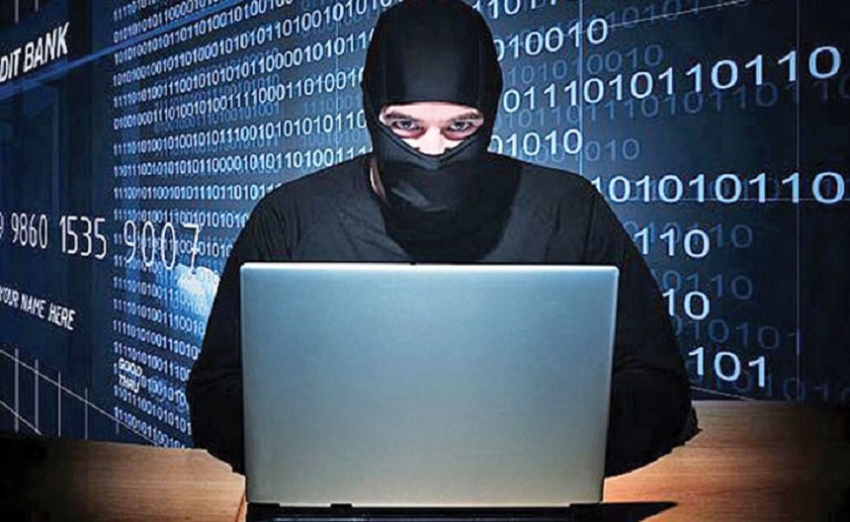By now, the country’s military and police are deployed in full force to eradicate the new terror threat of Islamic jihadism. It is refreshing for the millions of peace-loving Sri Lankans to see suspects arrested and safe houses raided.However, there is another realm where the jihadists have and will continue to spread their radicalised ‘Islamic caliphate’ ideology. That is the realm of the digital domain - the internet and allied platforms. For many years, the internet whilst connecting people and enriching our lives has also yielded a darker side. It has been a fertile breeding ground where faceless terrorists communicate hatred and intolerance, which manifests in carnage and death. A survey by the International Journal on Cyber Warfare stated that there were 50 million tweets globally by eight million users with the keywords – ‘ISIS and ISIL’. The new trend is e-jihadism extending to multidimensional propaganda.
Cyber crimes
As mentioned in my previous article on countering violent extremism, today, jihadist ideology is a global threat having crossed transnational boundaries. The internet connects every town in the world and is therefore considered by terror networks as a reliable and quick platform to transmit and order their works of destruction.
ISIS leaders post videos on YouTube glorifying the actions of their cadres worldwide. The internet can be accessed by anyone remotely. There is no need for facial interaction. It is an invisible cyber battleground.
Cyber crimes can be categorised as:
* cyber based terrorism
* espionage
* computer intrusion
* identity theft
* fraud
As digital devices become smaller and easier to carry, they are also offering advanced methods to communicate – e-mail, Skype, WhatsApp and Viber. All these facilities used by law-abiding citizens are also used by terror cells. Interacting and direct messaging on Facebook is another stealthy way that vulnerable youth and adults communicate. After being brainwashed, they will be in constant communication with their designated leader or handler (in the case of a potential suicide bomber). Cybercrime is used to purchase weapons from online arms bazaars.
Terror groups will often use fake websites that have the ‘look and feel’ of a legitimate website. Another way of obtaining your personal data (for identity theft) is by sending fake ‘cloned’ e-mails which may ask for your full name, bank accounts and mobile numbers. A common trick in cybercrime is the use of misspelt URLs and use of subdomains to deceive and redirect you elsewhere. A new digital threat was found overseas in the form of Ransomware – this is a malware that encrypts or locks your valuable digital files and then demands a ransom (cash) to release the locked data.Ransomware can thus infiltrate important computer systems and cripple the nation’s finances, cause mayhem in the stock markets and create havoc on air traffic flight control systems. It must be mentioned that the Signal Corps of the Army had already recognised these threats and deployed tactical countermeasures. The prudent Army leadership established a dedicated Cyber Regiment in 2017, to engage and mitigate threats in the digital domain, further augmenting our national security.
In the past, worldwide tweets on Twitter by the ISIS used English tweets, but now there is a shift towards tweets in the Arabic language - making the task difficult for local police. In a surprising countermeasure, millions of Muslims who desire peace began to refer to the ISIS as Daesh - to discredit and demean the jihadist group. This is a clear sign of cultural rejection. However, the terror network strives to maintain an active online presence. Psychologists agree that terrorists thrive on the oxygen of publicity. Jihadist ideology wants people to show them sympathy and propagates a negative attitude towards those who reject them. There are 46,000 suspected Twitter accounts (from Iran, Iraq and Saudi Arabia) that post tweets supporting the ISIS and will also influence Sri Lankan radicals following them. Many tweets also originate from the Al-Khansaa Brigade, ISIS’s an all-women police force. Al-Khansaa was a famous Arabian poet decades ago.
Cyber forensics
For Sri Lanka, the need of the hour is an empowered unit to monitor and trace jihadist-related tweets, Facebook posts, e-mails and wiretaps of Skype calls on a 24/7 basis. A classic example in counter-terrorism history was the use of the Carnivore system custom-built for the FBI. This allowed the FBI to read e-mails and online communication. Internet surveillance technology is a top priority to eliminate this form of faceless terrorism. A captured jihadist in India had confessed that he was first asked to download a ‘chat secure’ mobile app and then use Pidgin - an encrypted tool, to avoid detection as he chatted with his handler. The local jihadist operating in Sri Lanka can communicate in Sinhalese, Tamil and English which makes it a threefold challenge to intelligence agencies to trace calls and online chats. Training videos are common on jihadist websites to encourage others to enlist in their ranks.
Attacks on telecommunication
Communication is important in our daily routines. Even in the face of the recent Black Sunday attacks, it was text message news alerts that initially kept us updated and saved many lives. Mobile and fixed (land) line service providers are part of our communication and would also attract terrorist threats. The military operates its communications in three distinct methods - radio communication, line communication and radio relay communication. It is obvious that we cannot place armed sentries in the ionosphere, but it is crucial to monitor and restrict the use of telecommunication that would aid jihadists to enforce their campaign of ruthless terror.
For those using social media, please do not spread hate or violence. Neither forward inaccurate messages that create public chaos. Be responsible. Be smart. Send tweets and update posts that will enrich national unity. We must not let the digital domain become a future cyber battleground.




















